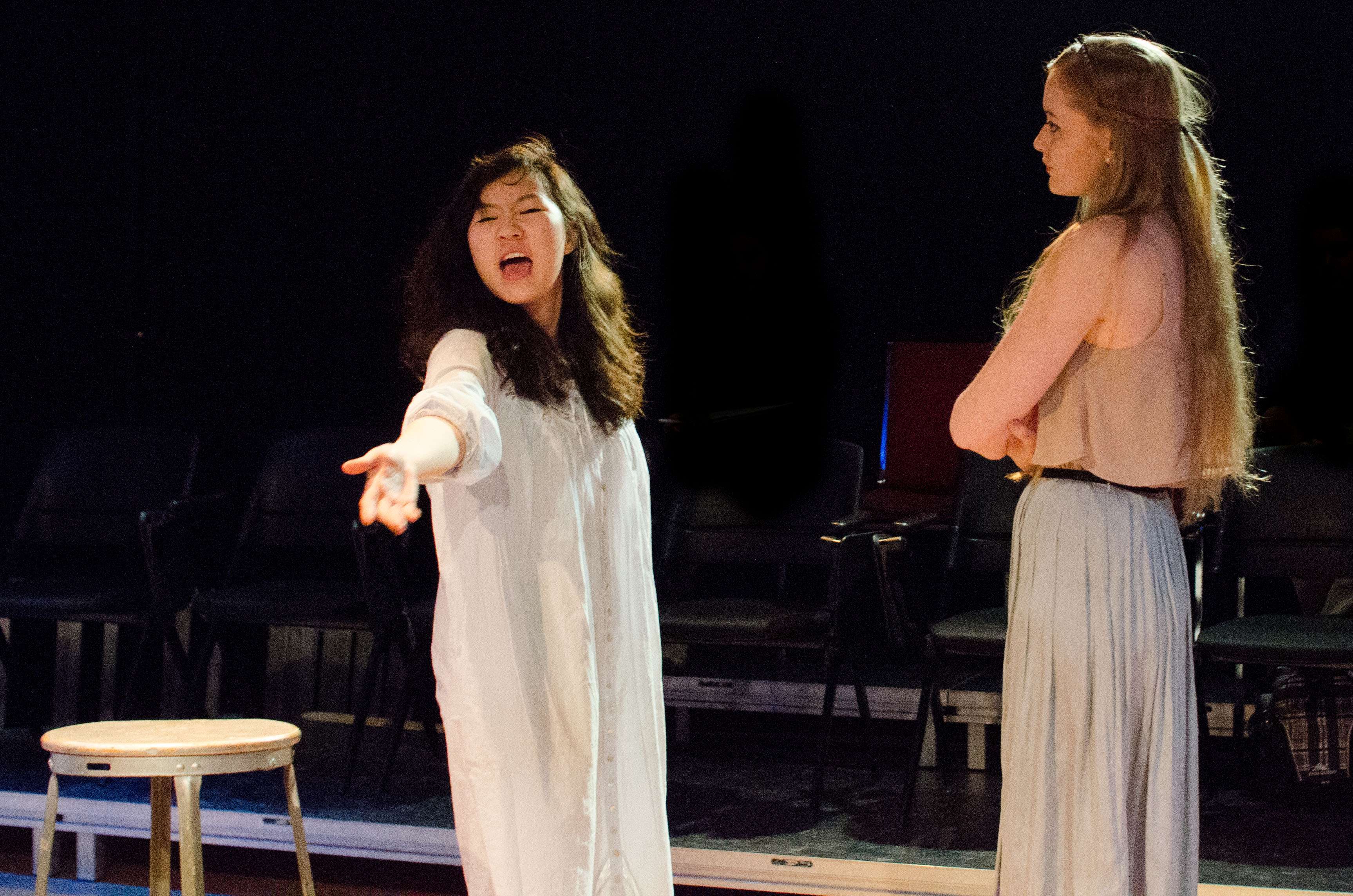Visceral and thoughtful, Sophocles’ Greek tragedy Antigone exposes us to elemental human choices without asking us to provide an answer. Starting this weekend, McGill’s student-run theatre company Tuesday Night Café (TNC) is performing Jean Anouilh’s adaptation of the classic in a philosophically stimulating production.
The plot begins with the end of a civil war between two brothers vying for the throne of Thebes. With both of them dead, the new ruler–and uncle to the fallen brothers–Creon (Alex Bankier), names Eteocles a hero, and condemns the other, Polynices, to rot. To maintain order in his new regime, he issues an edict forbidding anyone from affording the dishonoured brother proper burial rites, on punishment of death. However, when his niece Antigone (Kay Min) defies him, Creon is put in a desperately difficult position: he must decide what the price of law and order is when his own morality is at stake.
Director Harrison Collett truly takes advantage of the many levels of conflict in Antigone . The stage is split so that the audience can sit on either side; at the beginning of the show, I sat directly across from Creon, and behind Antigone. This is an ingenious element, reminding us that there are at least two trajectories to every story, and they’re not always reconcilable.
The characters don’t just clash with each other, at times they seem to exist on completely separate planes. Antigone’s lilting, ephemeral affectation; Creon’s authoritarian, powerful might; and the secondary characters’ simple innocence–are all legitimate expressions of the human experience, but separated in unfathomable and often incompatible ways. That is not to say that the characters and cast do not engage meaningfully with one another—rather, as the drama winds down, each realizes that he or she has been ascribed an unchangeable role that will continue in its course to the tragic end.
Min was well-cast as Antigone; for the most part the role calls for an otherworldly innocence, yet she also projects the necessary control and determination befitting her royal heritage and her moral conviction. She fuses the free spirit and the philosopher, totally embodying the lead role.
Bankier was truly stunning as Creon, exuding all the authoritarianism, vulnerability, fear, and desperation of a leader placed in an agonizing situation. Since Anouilh had to get the script past censors in Nazi-occupied France during the Second World War, Antigone could not be an overt call for the rejection of authority. Instead, we are surprised to find ourselves considering Creon’s point of view, though it seems inhumane and horrid, and it becomes difficult to unconditionally side with the heroine after sharing in all the thoughts of the quasi-villain. Thomas Vallières as Jonas the guard delivers a particularly fine performance, bringing charm, humour, and relatability to an otherwise heavy drama.
As the performance hurtles towards its tragic end, the meaning of life seems to fall apart. When Creon asks “What’s the point of it all?” and despairs that “The whole business is abysmally stupid,” these statements reflect back on Antigone; she’s made herself very clear as far as her ideals and morals, so what really is the point in continuing to defy her uncle, when the only result is death? Is Antigone life-affirming or not, and how much meaning can be extracted from her tragedy?
It’s difficult to answer these questions, especially as I don’t think Anouilh was clear enough in setting up the motivation for Antigone’s fateful decision. What started off as a rebellious desire to bury her brother—despite the consequences—morphs into a very different stance, manifested as her wish to die rather than live an empty life. It’s hard to tell whether she’s a martyr with morals, or an existentialist with no will to live. In the writing as well as the acting, these two ideals are conflated and entangled. Nevertheless, the cast puts on an excellent show, rich in the genuine complexities of human life.
The production succeeds in that it causes us to question our own ideals. There is no doubt that this play will force you to think, and for that reason alone, it is well worth seeing.
Antigone will be performed from Feb. 14-15 and 19-22 at 8 p.m. at Morrice Hall. Student tickets are $6.








